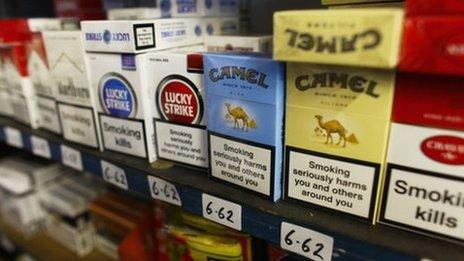Children tracked with GPS in Scottish tobacco sale study
- Published
- comments
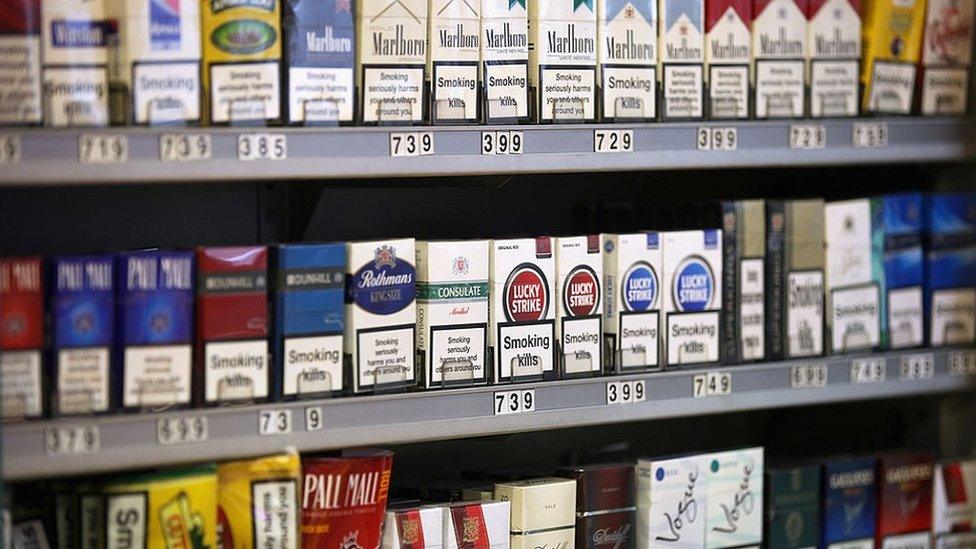
Cigarettes were on public display at till points in stores until about 2015
Children in deprived areas are exposed to significantly more tobacco sales than those from wealthier neighbourhoods, a new study has found.
Researchers used GPS trackers to record the movements of almost 700 young people aged 10 and 11 from across Scotland.
They found those from the most deprived areas encountered a shop selling cigarettes 149 times per week.
The figure plummeted to 23 times a week for children in better off areas.
Experts said that while tobacco outlets are twice as common in deprived areas, the study indicated exposure levels were six times more frequent than wealthier areas.
The findings came from the Growing Up in Scotland study conducted by Glasgow and Edinburgh universities.
It follows a blanket ban on the display of tobacco for sale across the UK in 2015.
Both children and their parents agreed to them wearing the trackers for eight consecutive days.
Researchers then mapped the location of all shops selling tobacco products across Scotland and followed the movements of participants over the time period.
Most exposure came from convenience stores and newsagents, with peaks just before and after school. There was also a higher than expected amount of exposure from supermarkets on weekends.
The study identified how often and for how long the children went within 10m (11yds) of a shop selling tobacco.
'Normalising' tobacco sale
The results between deprived and non-deprived areas were far more polarised than expected, academics behind the study said.
They added that children from more deprived areas are more likely to start smoking themselves - and pre-adolescence is a critical period where the path to starting smoking begins.
University of Glasgow's Dr Fiona Caryl, lead author of the research, said the findings provided a "significant contribution" to policy debate on tobacco availability.
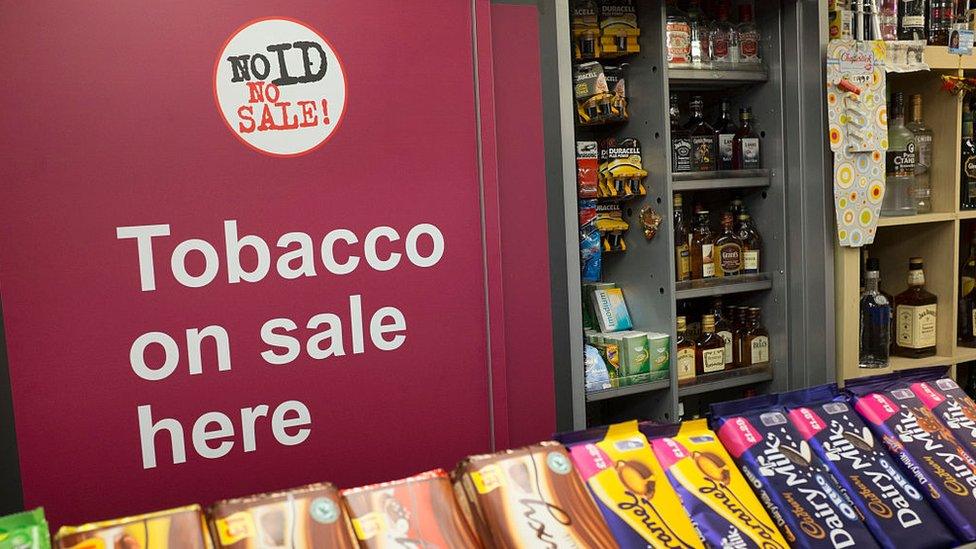
Most children were exposed to tobacco sale via newsagents or convenience shops
She added: "Identifying ways to reverse the normalising effects of ubiquitous tobacco retailing is key to policies aimed at preventing people from starting smoking."
Professor Jamie Pearce, a co-author of the report and an expert in in tobacco-related health from University of Edinburgh, concluded that reducing the number of shops selling tobacco or restricting sale times would have a "greater benefit" for deprived groups "who suffer the greatest amount of tobacco-related harm".
The study was funded by the Medical Research Council (MRC), the Scottish Government Chief Scientist Office (CSO) and NHS Health Scotland.
Dr Garth Reid at NHS Health Scotland said: "As a national health board working to reduce health inequalities and improve health, we were pleased to support this innovative research into children and young people's exposure to tobacco products in Scotland.
"We welcome the findings, which will inform a report that we will publish later this year, considering the implications for health inequalities and tobacco control in Scotland in greater detail."
- Published14 May 2019

- Published1 July 2017
- Published6 April 2015
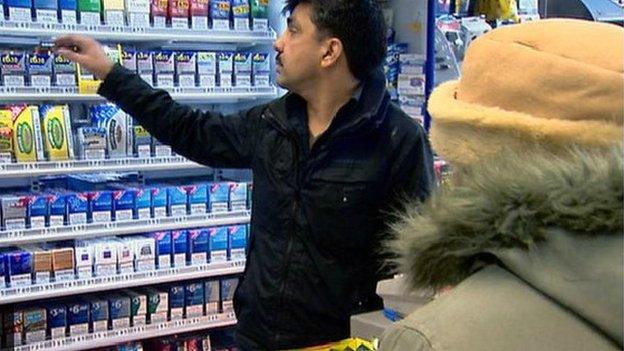
- Published12 December 2012
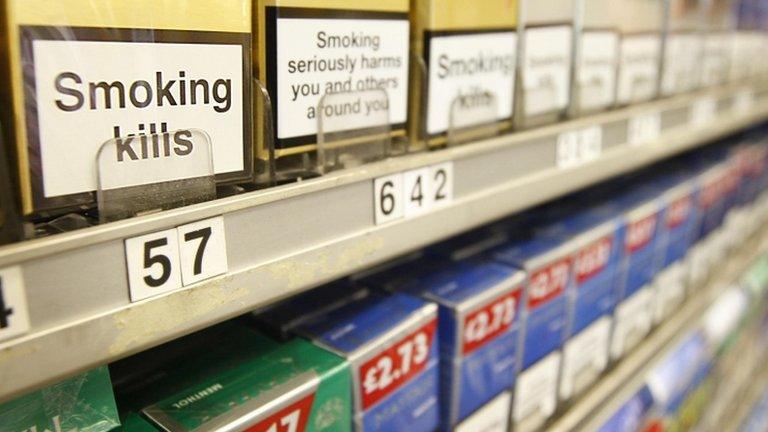
- Published6 April 2015
